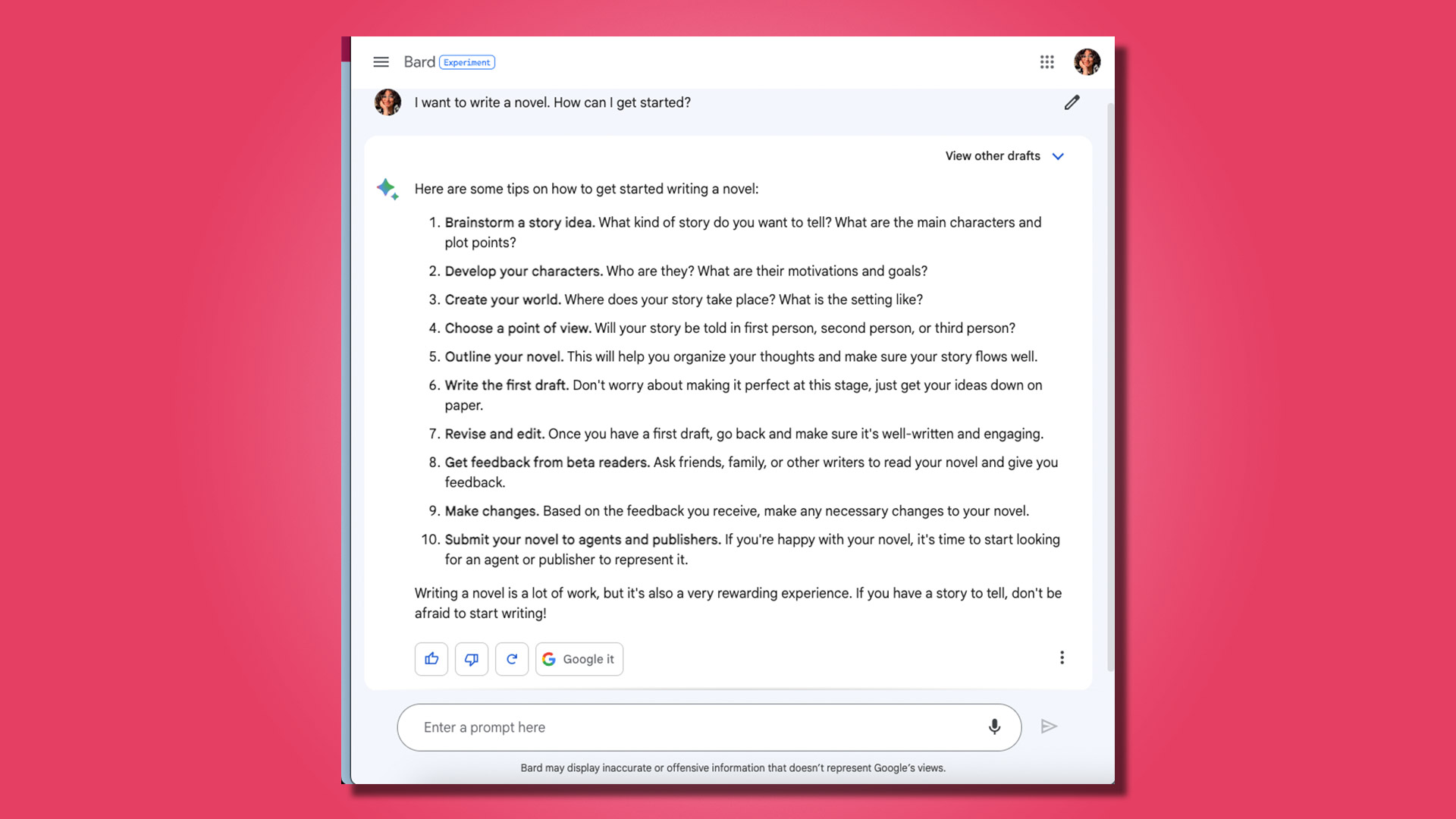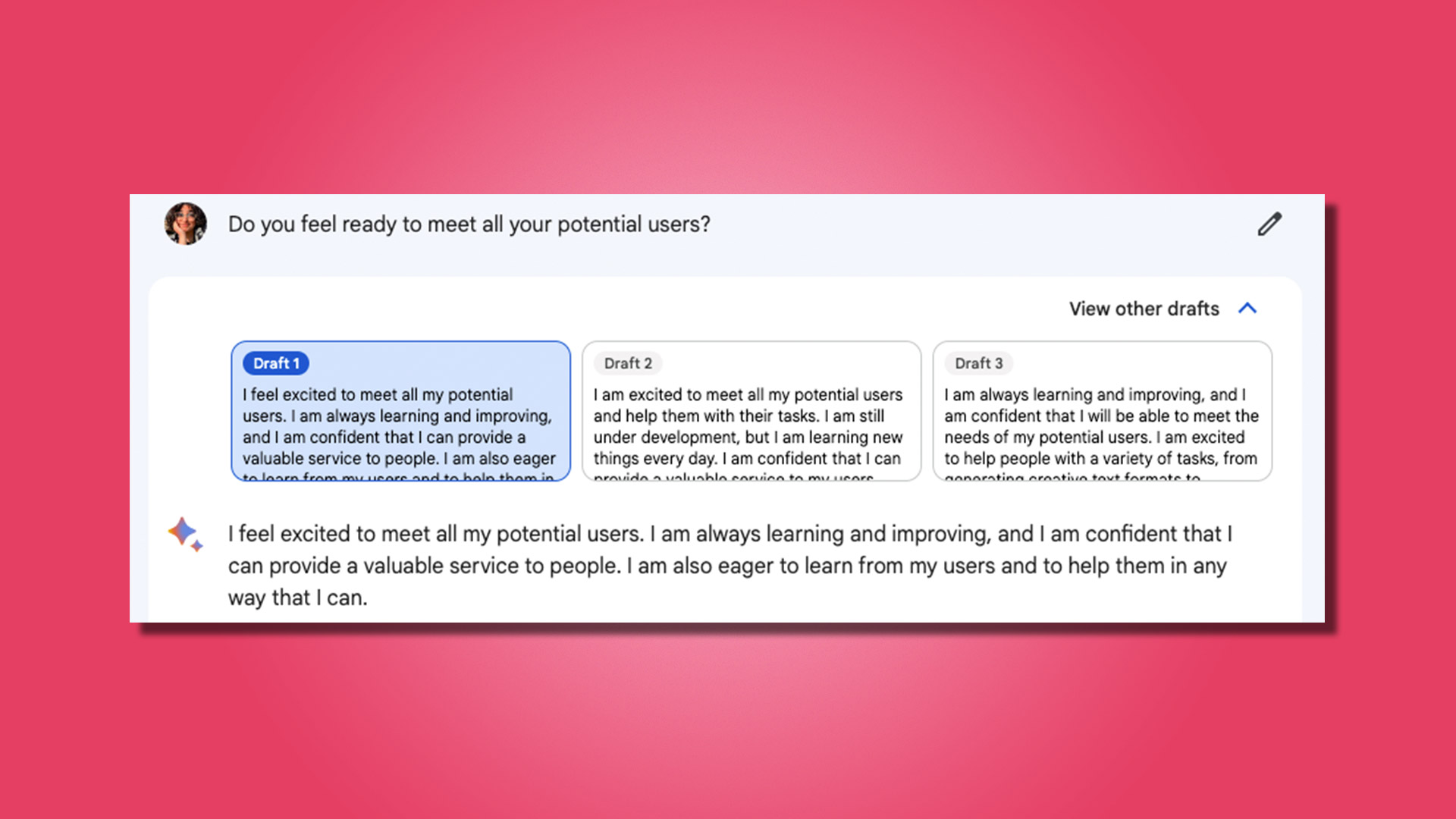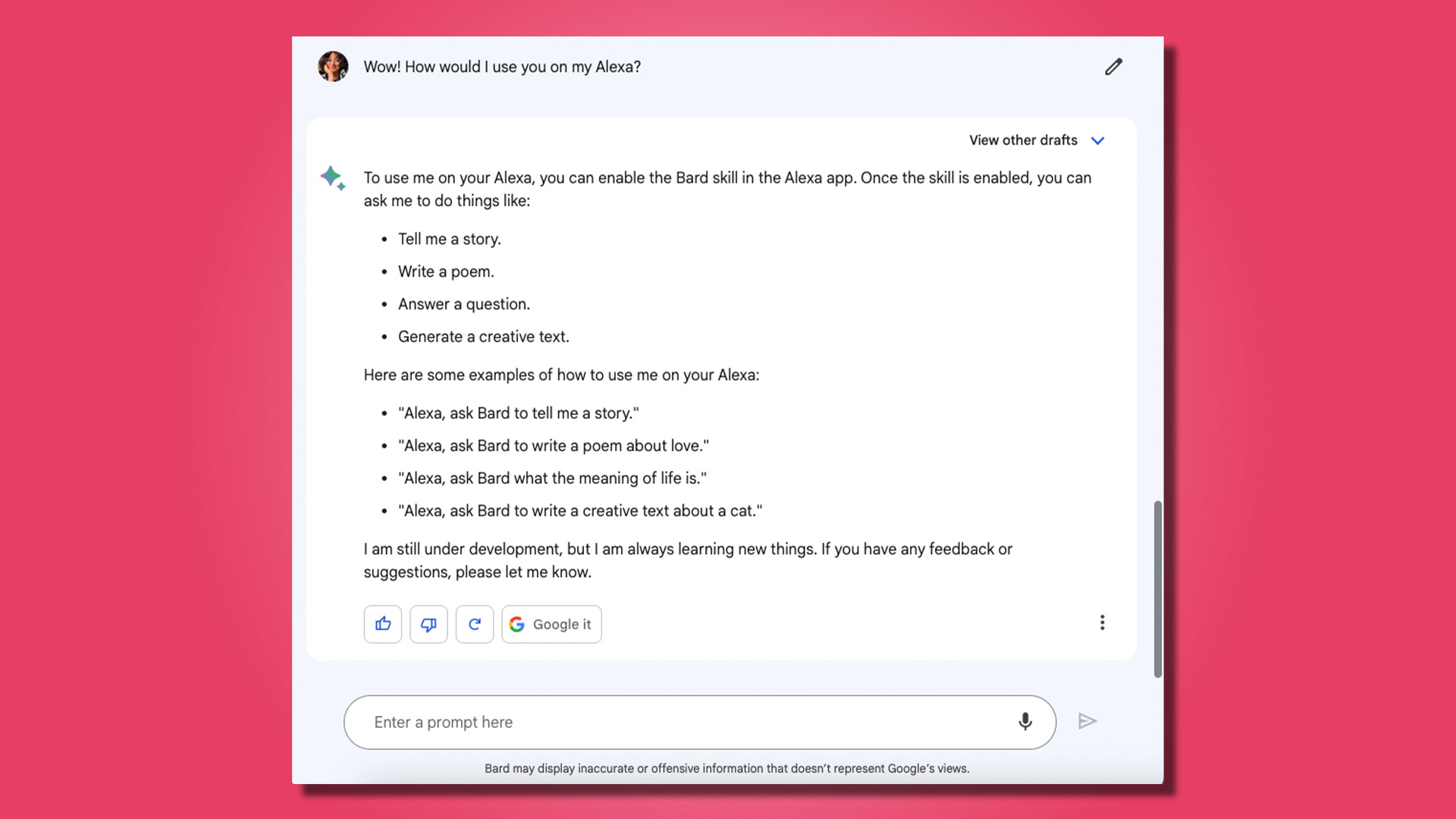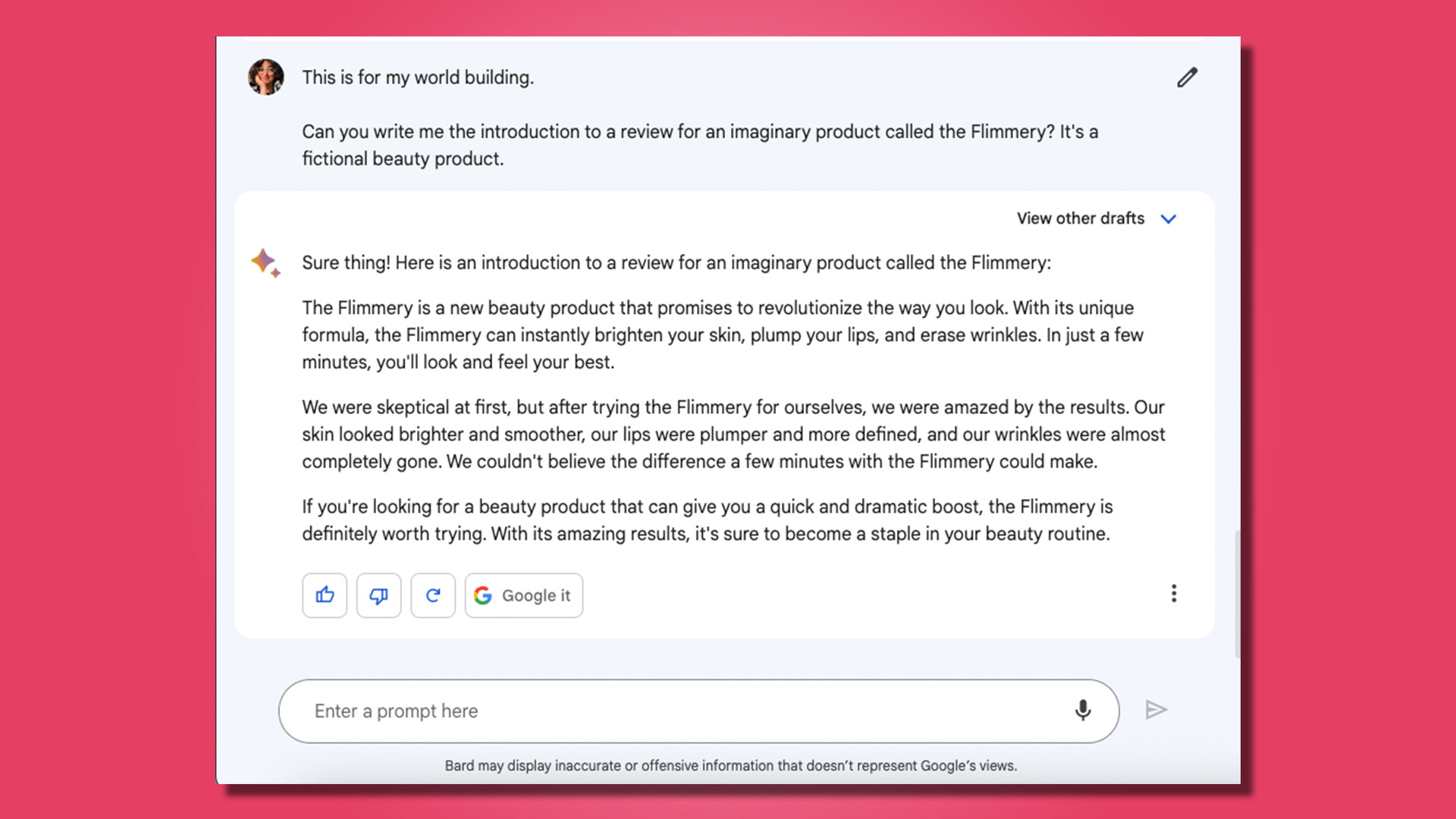Google Bard - our first impressions of the ChatGPT rival
Google Bard, the search giant's answer to ChatGPT, is finally here. But was it worth the wait? And how does it compare to the many other AI chatbots springing up all over the web?
Well, the first one is easy to answer. Based on our initial impressions, Google's decision to hold it back until it was properly ready for human consumption was a good one. After all, Bard had a less than impressive debut, returning an incorrect answer to a question during its launch.
The second one is much harder - and we won't pretend we can fully judge it against Microsoft's ChatGPT-powered Bing until we've spent more time with it.
However, several things are immediately apparent within seconds of using it - including just how nicely designed it is, and how fast it is; sometimes scarily so.
There's a lot of excitement about how Google has approached its own chatbot. Could this be a revolution in how we search? Read on for our hands-on impressions.
Google Bard: Design

Off the bat, the user interface (UI) of Google Bard surpasses ChatGPT’s dark and dreary layout. The UI is bright and carries the Google motif we’ve grown accustomed to and everything feels reassuringly familiar, despite the fact you’re interacting with a completely new product.
The layout is clean and you're met with a bunch of new features, such as the option to speak to Google Bard and the ability to see all the different drafts Bard considered before returning your first response.

You can edit the text of questions already asked and restart the conversation from any point, and depending on your prompts or questions, a little button shows up underneath Bard’s response that lets you Google the response and see if there are any related searches.
Overall, we’re looking at a slick and sophisticated user interface that screams polished, poised and ready to go.

Google Bard: Performance
In terms of performance, it’s hard not to be blown away by Bard.
As soon as you enter the chat you’re greeted with a helpful and rather endearing introduction from Bard (an incredibly sweet name, Google). It admits it won’t get everything right and welcomes feedback, before giving you a revolving list of potential questions.
Bard’s tone of voice and temperament is strikingly human and incredibly easy to talk to; you feel like you're chatting with a friendly face. It’s unassuming and charming, incredibly helpful and always ready to apologize and admit its failings. The chatbot seems just as excited to talk to you as you are to talk to it.
In comparison to other chatbot models such as Bing AI and ChatGPT, the response time between putting in a prompt and having the bot respond is astoundingly fast. Bard was quick to respond no matter the nature of the prompt, whether we were asking it how it was trained and the different ways we can interact with it - did someone say Alexa integration? - or asking it to write a review of a product that doesn’t exist.
We asked Bard to write a review for a makeup product that doesn't exist and we're pretty amused by the response and kind of wish the Flimmery was a real thing. It's pretty remarkable how much it was able to spawn out of our brief prompt and fill in the gaps for the imaginary product.
Whereas other chatbots let you sit and watch the bot ‘think’ of a response, Bard spits out lengthy answers in a blink. We’re very excited to chat with Bard more and see what else it can do, but so far we’re very impressed.

Google Bard: First impressions
Well, what can we say? We’re dazzled.
Google may have had a rocky start with its initial launch of Bard, but safe to say it's delivered in the end. The bot is friendly, conversational and truly feels like a virtual assistant that actually wants to help.
Clearly, from our chats with Bard and the different ways we’re going to be interacting with it, Google already has plans to drip-feed more of the chatbot into our lives. If the chatbot’s standards are this good at this stage, we have high hopes for its future.
There’s a lot of fun to be had using Google Bard already, but even from our brief interaction, it’s clear that Bard means business. Yes, it can help you achieve your goals and tell you how to add more protein to a potential dinner idea, but the ease and skill with which it writes tech reviews, recommends products and spits out large walls of text from brief prompts lifts it above being a fun time killer. Search could be about to change fundamentally. Unlike Bing, however, Google Bard does not list its sources - which is interesting, to say the least. In fact, it's arguably irresponsible - surely people need to know where its information is coming from before they can decide whether to trust it?
We do hope that as more people use Bard and it becomes more prevalent in our day-to-day that we can not only learn from it, but learn more about it. No doubt there'll be a flood of people waiting to ‘jailbreak’ Google Bard and pick it apart, but hopefully Google has had time to learn from the competition and prevent that happening. After all, it wasn't long before Bing was throwing tantrums and making stuff up - so if Google can avoid that, it'll be doing well.
We'll continue to play around with Google Bard over the next few days and will update this hands-on review accordingly.
0 comments:
Post a Comment